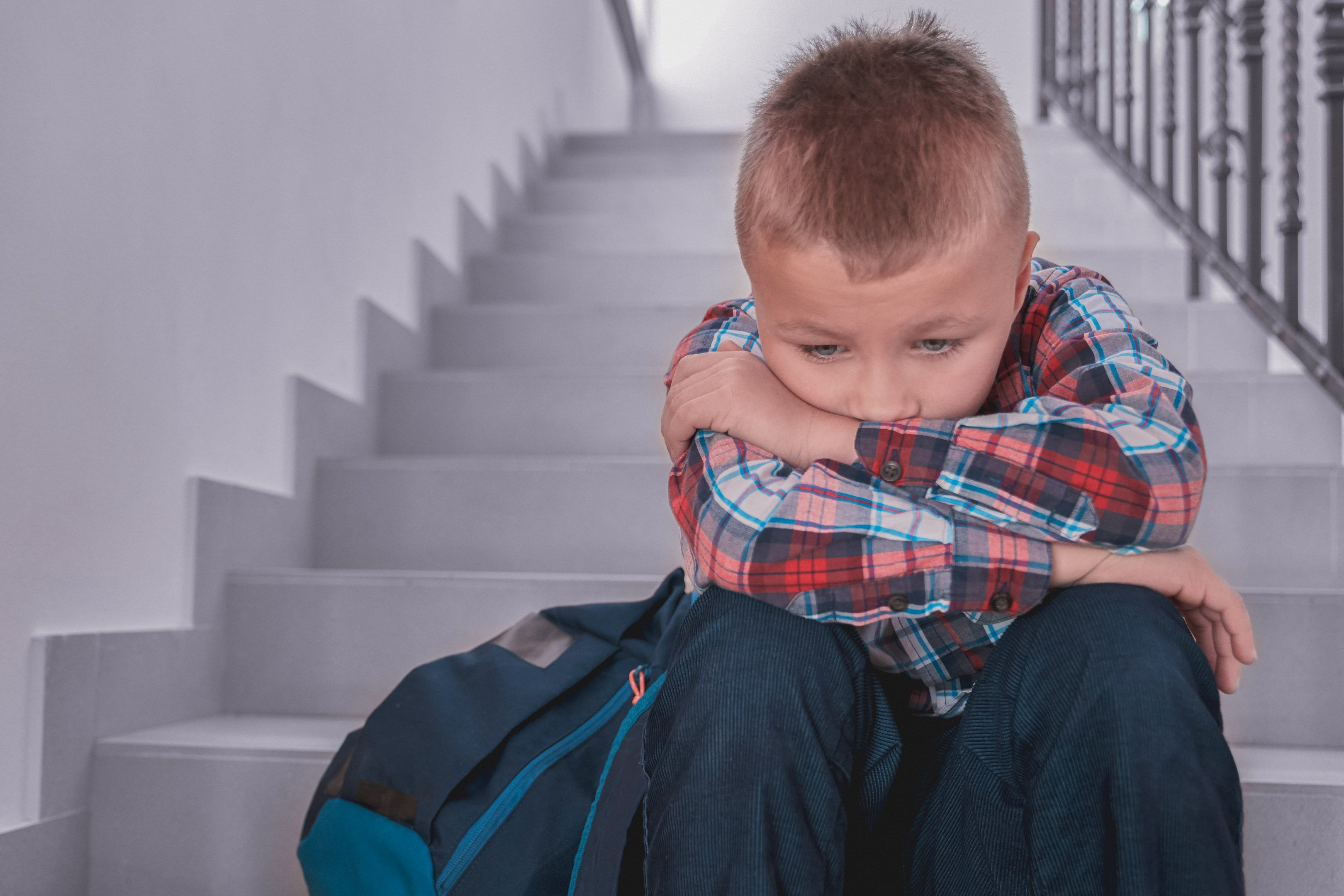Managing Back-To-School Anxiety: Practical Tips for Parents and Kids
Discover practical tips to manage back to school anxiety for both parents and students. Equip yourself with strategies for a smoother transition.



Key takeaways
- It’s common for children to experience back-to-school anxiety before the start of the school year. They might worry about making friends, having more homework, or feeling comfortable in their new classroom.
- Parents can help their kids prepare for the first day of school by establishing a morning routine, encouraging them to express their feelings, and sharing healthy coping strategies for managing stress and anxiety.
- Most kids feel a little anxious about starting school. But if your child’s anxiety continues throughout the year or appears to be impacting their day-to-day life, consider seeing a mental health professional to get the right support to help them thrive.
The annual transition from late summer to the start of school can be challenging for many families. You want to enjoy the final days of summer, but you’re already thinking about school supplies, class assignments, and how your child will cope with the transition.
If this feels familiar, know that it’s normal for both you and your children to experience some back-to-school anxiety. This article reviews how parents can help their children prepare for their first day and manage anxiety throughout the year.
Introduction to back-to-school anxiety
It's common for children, teens, and their parents to feel anxious in the days and weeks leading up to the new school year. In some cases, nerves may persist for the first few weeks of school as your child adjusts to their new classroom, routine, or group of friends.
There are various triggers for back-to-school anxiety. These include:
- Transitions: Starting a new routine can be overwhelming for many children. It may be particularly challenging when entering the next level of school, such as kindergarten, middle school, or high school.
- Social interactions: After a summer away from their classmates, some children will feel nervous about the social aspect of school. They might have concerns about not fitting in or feeling awkward in certain situations, especially if they’re new to a school system.
- Cultural factors: For children whose first language isn’t English, language barriers may make it harder to follow lessons or connect with peers. Kids from different cultural backgrounds may also feel singled out or worry about being misunderstood, which can increase the risk of bullying or exclusion.
- Academic pressure: For many kids, summer is a welcome break from homework. But as the new school year approaches, they may begin to worry about their classes. Research shows that academic pressure in teens is associated with mental health concerns like anxiety, depression, and suicidal thoughts and behaviors.
There are several signs that your child may be worried about going back to school, including:
- Asking the same questions, even when you’ve already answered. For example, “What if my friends aren’t in my class? Who will I eat lunch with?”
- Complaining about headaches, stomachaches, nausea, or general fatigue
- Trouble falling or staying asleep at night. They might take longer than usual to go to sleep or wake up because of nightmares or other worries
- Refusing to participate in school-related activities, such as shopping for supplies, meeting their teacher, or talking about the upcoming school year
- Eating more or less food than usual
- Irritability, restlessness, or general changes in mood
These behaviors aren’t uncommon, but you may want to consult a mental health professional if they continue for more than several weeks or significantly impact your child’s daily functioning.
Feeling anxious versus school refusal
School refusal is when a child or teenager avoids going to school. Approximately 1-5% of school-aged kids experience school refusal. It can affect children of any age, but is most common among children aged 5, 6, 10, and 11 years.
Here are a few notable distinctions between typical nerves and school refusal:
- The level of distress caused by school. School refusal causes extreme emotional distress. This includes anxiety, depression, and fearfulness.
- How long the child avoids school. With school refusal, your child will try to avoid school for weeks or months. Even when they attend school, they may spend their time in the nurse's office or go home early.
- How strongly the child resists school. Younger children may cry and throw tantrums, while older kids may threaten to harm themselves or others if they have to go to school.
School refusal can be a symptom of multiple mental health conditions. This includes generalized anxiety disorder, social anxiety disorder, specific phobias, major depression, oppositional defiant disorder (ODD), and post-traumatic stress disorder (PTSD).
When a child is struggling with their mental health, it can impact other parts of their life — like friendships and performance at school. Poor mental health in kids is associated with academic underachievement and fewer days at school.
How to prepare for the first day of school
You can’t attend school with your child, but you can prepare them for a positive first day. Here are three ways to reduce back-to-school anxiety and help them feel safe and supported during the new school year.
1. Do a routine reset
Between longer days and later bedtimes, our schedules often become more flexible during the summer months. But as the new school year approaches, consider easing into your regular weekday routine. This might mean going to bed earlier, choosing outfits the night before, and whatever else your family needs to feel prepared each morning.
2. Talk about the new school year
Don’t make the first day of school the elephant in the room. Ask your child how they’re feeling, and try to address any questions or concerns they may have. Validating their feelings can help them feel more seen and supported as they prepare for their first day.
For kids who don’t seem as willing to talk, look for opportunities to casually discuss the upcoming transition. For example, let them choose their school supplies and ask what they’re most excited to learn about this year. When packing their lunchbox, say something like, “I wonder what [new teacher] eats for lunch.”
3. Remind them of their strengths
Boost your child’s confidence by reminding them of their strengths. For example: “You’re a great friend. You’re excellent at coloring. I’ve noticed you’re really good at following directions.” Talking about their strengths, skills, or previous experiences at school can empower them to feel more confident walking into their classroom.
Ongoing strategies to support your child’s mental health
Feeling comfortable at school begins at home. Research shows that parents can play an important role in their children’s academic motivation and engagement, as well as their social and emotional well-being. Here are four strategies that parents can use to support their kids throughout the school year.
1. Encourage open communication
Most parents are quick to ask their children questions like, “Who did you play with?” and “What did you learn?” And while it’s certainly important to know what your child is doing, it’s also essential to know how they are doing.
Encouraging open communication with your child can help them feel comfortable expressing their thoughts and feelings. For children who are still learning to identify and regulate their emotions, it may be useful to use tools like feeling charts or emotion wheels.
2. Practice calming techniques
Anxiety can be scary for kids, especially when they don’t know how to manage their feelings. Here are some strategies you can teach your child to help them remain calm during stressful situations.
- The 3-3-3 rule: Name three things you see, describe three sounds you hear, and move or touch three items around you
- Use positive self-talk, like “I am brave,” and “I am loved.”
- Explore creative outlets like drawing, journaling, and music
- Deep breathing exercises, like cookie breathing for small children (pretending you’re inhaling the scent of a delicious fresh-baked cookie, and then exhaling to blow and cool down the cookie) and more traditional belly breathing for older children and teens.
3. Involve their teachers
Collaborating with your child’s teacher, guidance counselor, or other school staff is another way to support your child’s mental health. If your child seems to be struggling, their teacher may have additional strategies to help them feel more comfortable in the classroom. You may also find that your school offers additional resources, such as counseling services, support groups, 504 plans, IEPs, or peer mentors.
4. Seek professional support
Anxiety that continues for several months into the school year may be a sign of an undiagnosed mental health condition. If your child's symptoms are impacting their daily life, it’s best to meet with a mental health professional who has experience working with children. They can offer a safe space for your child to share their concerns and develop the skills to feel confident at school.
If kids mention self-harm or say things like “I don’t want to live” or “I’d rather die than go to school,” that should be taken seriously and get immediate professional support.
Practical mental health advice for parents
Back-to-school season can bring mixed emotions for parents, too. On one hand, you’re excited to watch your child learn and grow. But you may also be nervous about them navigating new routines, social situations, and academic challenges — especially if you have anxiety yourself.
The following tips can help you manage your own mental health and well-being as you head into the new school year.
- Prioritize self-care: Make time for warm baths, walks with friends, or any activity that helps you feel your best. Parental stress can affect children's mental health, so this is important for both you and your family.
- Lean on your support system: Back-to-school season often means more responsibilities for parents. Make a list of friends, family, and fellow parents who are available to listen or lend an extra set of hands.
- Stay organized: Creating a regular routine can benefit both children and parents. This might mean meal prepping, splitting household chores, and keeping a shared calendar with your partner.
- Find joy each day: Whether it's hugging your child each morning or reading a chapter of your book at night, remember to find small joys each day.
- Recognize signs of burnout: If the new school year is taking a toll on your mental or physical health, it may be a sign of parental burnout.
How Emora Health can help with back-to-school anxiety
It’s normal for children and their parents to feel a bit nervous as the new school year approaches. Recognizing the signs of back-to-school anxiety can help you support your child as they navigate this change. And if your child’s anxiety continues into the school year, know that Emora Health can help.
Emora Health connects children, teens, and young adults with licensed behavioral experts, including therapists, psychologists, and psychiatric clinicians, who specialize in anxiety, depression, and navigating transitions. They’re trained in evidence-based treatments like behavioral therapy, CBT, parent training, and social skills training to help young people heal and grow.
Start your search today.





